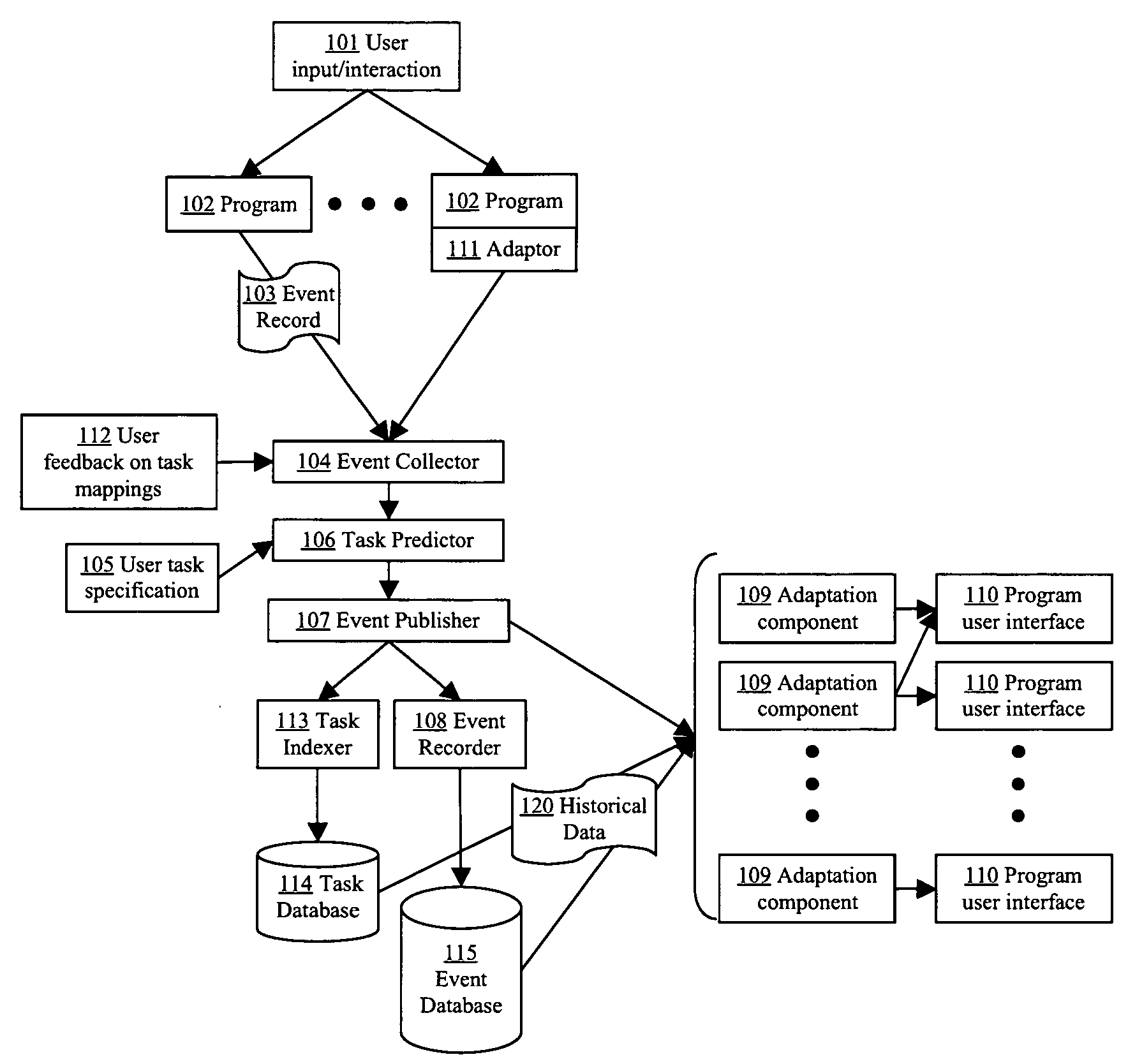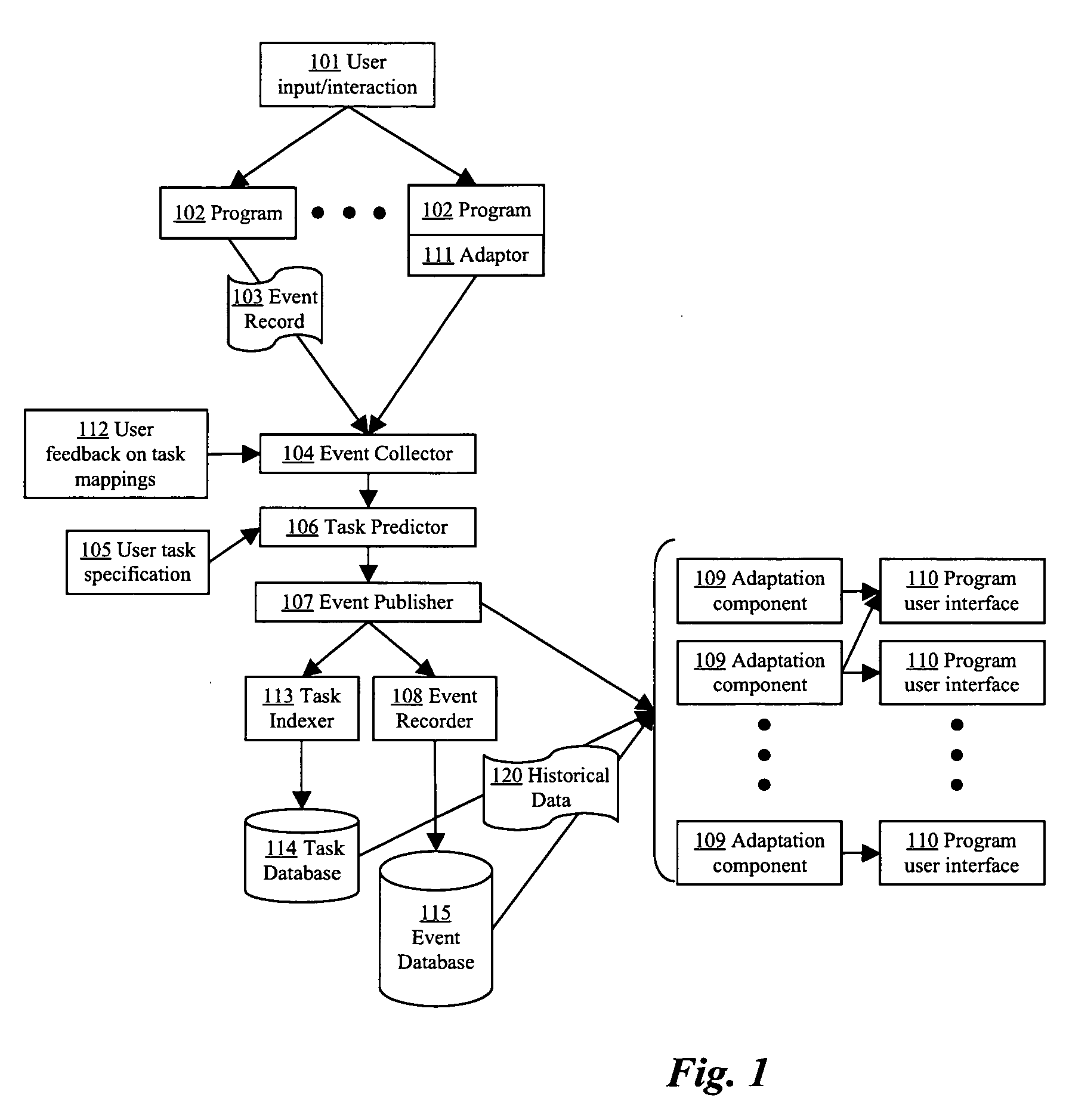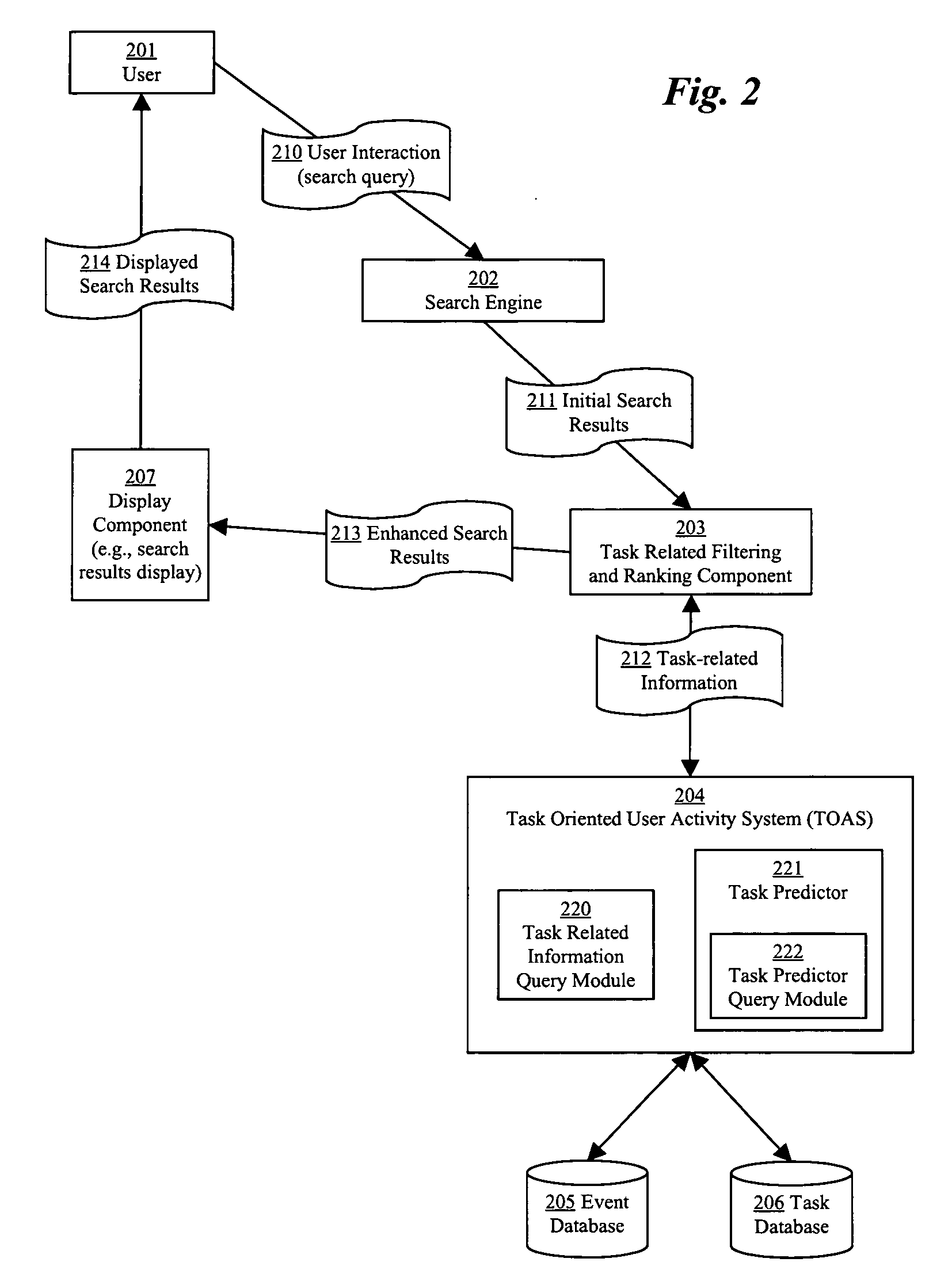Methods for generating search engine index enhanced with task-related metadata
a search engine and task technology, applied in computing, instruments, electric digital data processing, etc., can solve the problems of difficult and frustrating problems for computer users, insufficient to help people locate information, and various significant limitations of existing search engine technology, so as to increase the relevance of results
- Summary
- Abstract
- Description
- Claims
- Application Information
AI Technical Summary
Benefits of technology
Problems solved by technology
Method used
Image
Examples
Embodiment Construction
[0021]Although the present invention may be implemented on various computer devices running any of several operating systems and application programs, the following description may make reference to specific software applications, operating systems, and tasks for the purposes of illustration. Those skilled in the art will recognize that the present invention is not limited to these particularities.
DEFINITIONS
[0022]The following definitions will be used in the context of the present description:
[0023]Resources. Resources include logically grouped collections of stored information. Common examples of resources include documents, files, folders, web pages, email messages and saved search queries. Resources also include named entities or processes that the user can send information to or receive information from via the computer interface. Examples include people (contacts) and mailing lists. Resources may also be applications or database servers. Examples may include calendaring softwa...
PUM
 Login to View More
Login to View More Abstract
Description
Claims
Application Information
 Login to View More
Login to View More - R&D
- Intellectual Property
- Life Sciences
- Materials
- Tech Scout
- Unparalleled Data Quality
- Higher Quality Content
- 60% Fewer Hallucinations
Browse by: Latest US Patents, China's latest patents, Technical Efficacy Thesaurus, Application Domain, Technology Topic, Popular Technical Reports.
© 2025 PatSnap. All rights reserved.Legal|Privacy policy|Modern Slavery Act Transparency Statement|Sitemap|About US| Contact US: help@patsnap.com



